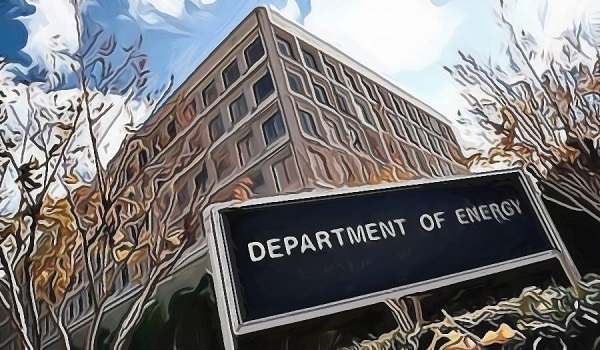- Telecommunications Giant Vodafone Leaves the Libra Association
- Group of Central Banks Assesses Developing Central Bank Digital Currencies
- South Korea Might Impose 20 Percent Tax on Cryptocurrency Profits
- Report: Terrorists Increasingly Use Crypto to Raise Funds Anonymously
- Canadian Securities Administrators Subject Crypto Exchanges to Securities Laws
US Department of Energy Begins Funding Blockchain Projects up to Almost $5 Million

The U.S. Department of Energy’s (DOE) Office of Fossil Energy (FE) has announced up to $4.8 million in federal funding for research and development (R&D) of blockchain projects. The fossil energy sector is increasingly being overlooked by graduates as the media and public opinion largely focuses on the benefits of renewable energy and the scaling back of fossil energy.
However, is fair say that fossil energy isn’t going anywhere for a while. There have been some significant leaps forward in renewable technology, however, with world population continuing to grow, renewables in their current form will not be able to support our societies.
The fossil fuel industry also has significant infrastructure and momentum, since most people still rely on fossil fuels for their cars and to heat their homes. They also have more energy density than many other fuels which keeps their cost relatively low. Of course, fossil fuels have their problems, but it is going to be a long road until they are replaced.
The Office of Fossil Energy is aiming to develop the next generation of science and engineering professionals in the fossil energy sector. Part of this development will be to reduce the cost of fossil energy, as well as reducing the carbon footprint of fossil energy, something which environmentalists are very concerned about.
One key project will focus on emerging technologies, such as blockchain. This isn’t the first time the Department of Energy has shown its support for blockchain technology. In July 2018 they announced $95 million in grants to several companies in different states, one of which was Colorado-based blockchain startup Grid7, which aims to develop a decentralized energy grid.
The details of this new blockchain funding aren’t well known; however, blockchain has been tossed around as a viable solution to issues faced in the environmental space for some years. Some proponents believe that blockchain technology will allow for improved transparency and traceability in the supply chain area, ultimately reducing waste and costs.
We are increasingly seeing more and more sectors looking to emerging blockchain technologies to solve their problems. There has been a huge increase in the number of blockchain start-ups in recent years, and these new companies are manufacturing creative solutions to industry problems. Blockchain represents an entirely new way of handling and looking at data, which many industries have been needing for some time. This is especially true for older industries that are steeped with outdated systems and practices.
Digital favorites
- Siti Di Scommesse
- Casino Bonus Senza Deposito Immediato
- Best Casinos Not On Gamstop
- Casinos Not On Gamstop
- UK Casinos Not On Gamstop
- Non Gamstop Casinos
- UK Casinos Not On Gamstop
- Casino Not On Gamstop
- Non Gamstop Casino
- Slots Not On Gamstop
- Meilleur Casino En Ligne France
- Gambling Sites Not On Gamstop
- オンライン カジノ おすすめ
- Gambling Sites Not On Gamstop
- Non Gamstop UK Casinos
- UK Casino Sites Not On Gamstop
- UK Casinos Not On Gamstop
- Non Gamstop Casinos UK
- Non Gamstop Casino Sites UK
- Best Slot Sites
- UK Online Casinos Not On Gamstop
- Best Non Gamstop Casino
- Best Sports Betting Sites Not On Gamstop
- Meilleur Casino En Ligne
- Migliori Casino Online
- Meilleur Site De Casino En Ligne
- Pari Sportif Belgique
- Siti Casino
- Meilleur Site De Paris Sportif International
- 익명 카지노
- Fm 카지노
- Casino Sans Verification
- Real Money Casino App No Deposit
- Siti Non Aams Bonus Senza Deposito
- Casino Non Aams
- Meilleur Casino En Ligne Belgique
- Site De Poker
- Casino En Ligne 2026
- Meilleur Casino En Ligne 2026
- Casino Online Non AAMS





